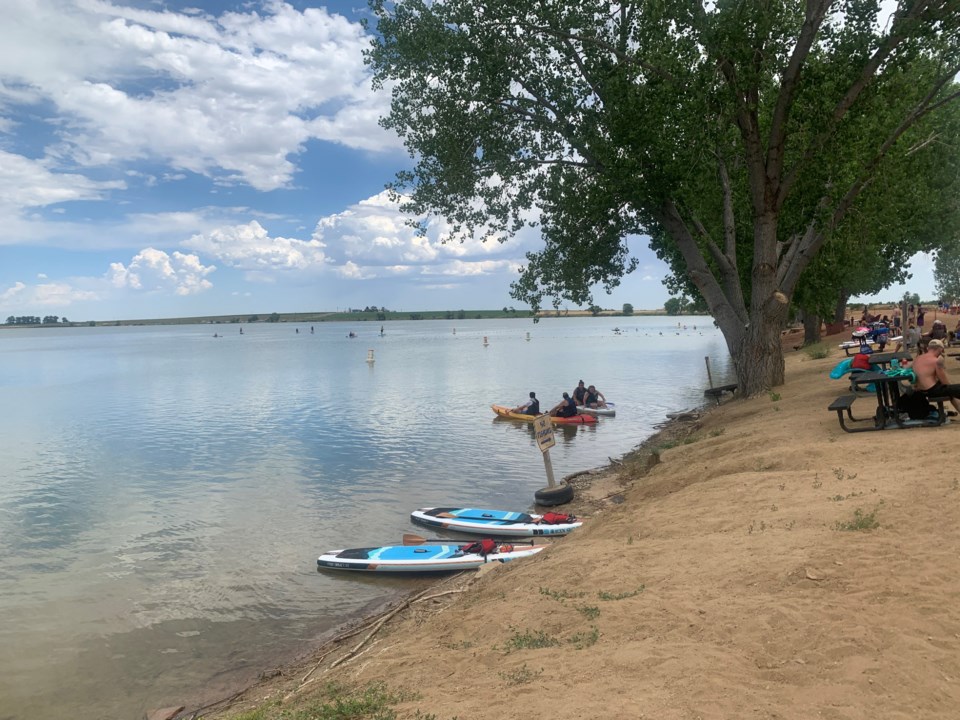Oil and gas activity in Longmont will be the focus of a city council work session tonight, including a review of reported high levels of volatile organic compounds, or VOCs, measured in January at Union Reservoir.
A city staff report states Union Reservoir monitors last month recorded the highest levels of VOCs since monitoring began in 2019. Winds were from the east/northeast when levels of methane and other VOCs increased markedly for about 10 minutes before the air quality returned to normal, the report states.
Although high, the recorded levels did not exceed any regulatory air standards or Environmental Protection Agency health-based guidelines. City staff members notified the Colorado Oil and Gas Conservation Commission and Colorado Department of Public Health of the spike in VOCs, the report states.
The data on the VOC emissions also was shared with oil and gas operators working in the area. The VOC spike may be related to maintenance at an oil and gas well just east of Union Reservoir, the report states.
To inform residents about notable air quality topics, a new “air quality” category has been added to the city’s eNotification system, which enables residents to receive air quality updates via email. Residents can sign up for notifications here.
The city began a regional air quality study in March 2019, with air monitoring stations located at Union Reservoir and Vance Municipal Brand Airport. The city extended the study, which is being conducted by Boulder Atmosphere Innovation Research, or Boulder AIR, through 2021.
Real-time data from the monitoring stations is available here.
Among the key findings from the first year of air quality data collection was that many air pollution events are short term, with elevated pollutant levels lasting five to 10 minutes, according to the staff report.
“This finding is significant because it confirms the importance of high-resolution, research-grade studies capable of recording extremely short-term events, which may go undetected by less sophisticated air quality studies,” the report states.
Council members also will review Senate Bill 19-181, legislation passed in 2019 that increased local governments’ regulatory power over oil and gas activity within their jurisdictions, as well as updated rules approved in November by the Colorado Oil and Gas Conservation Commission. Among the major changes made by the COGCC new rules are a 2,000-foot “setback” requirement between new wells and most buildings; new permitting procedures that will include assessment of cumulative impacts on air quality; new controls on the venting and flaring of methane; and safeguards meant to protect low-income people and people of color from disproportionate development impacts.


